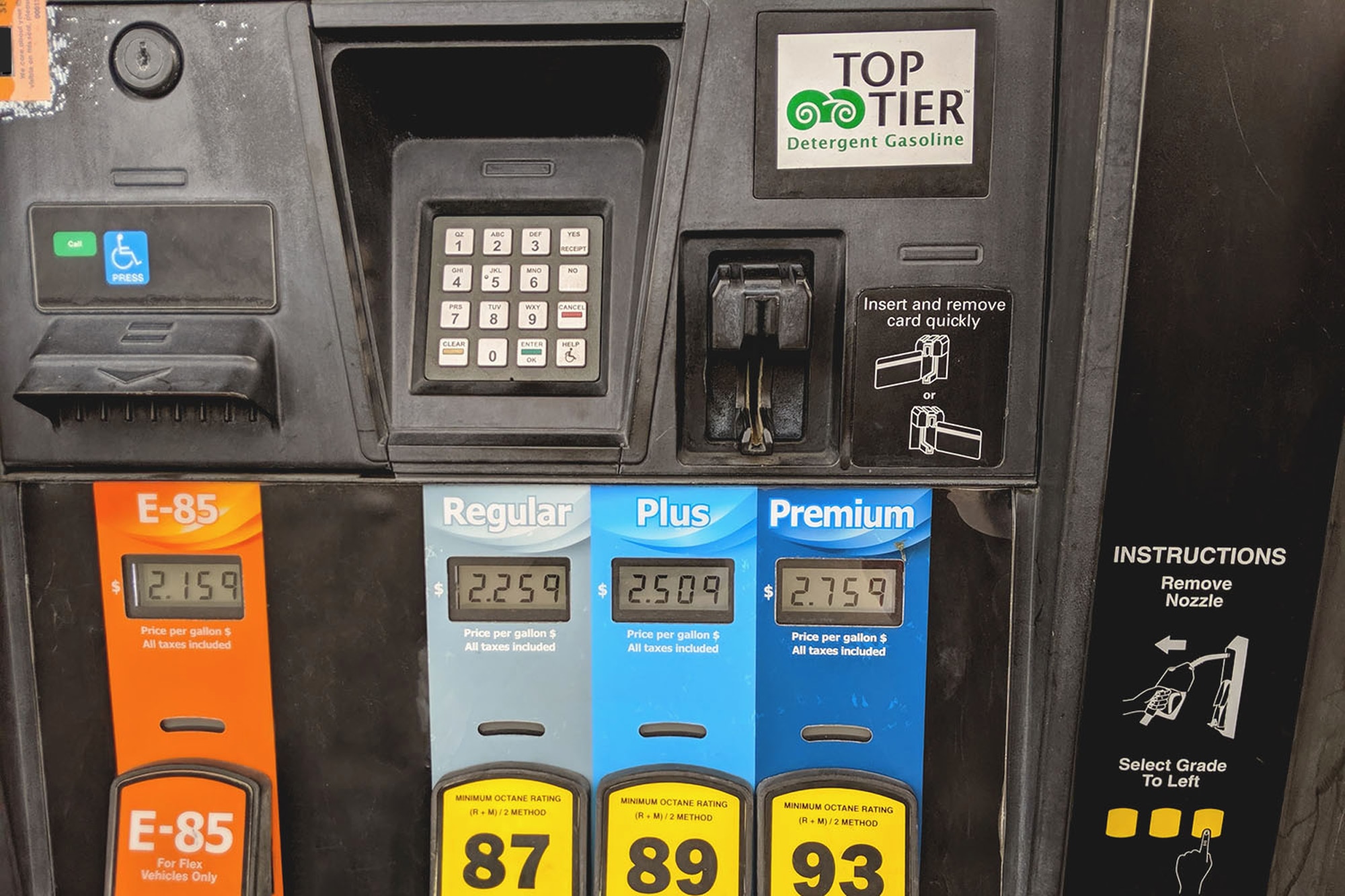Is Top Tier Gas Better for Your Car?
AAA study shows that the additional detergents in Top Tier gas keep engines cleaner and running better.
 Aaron Miller/Capital One
Aaron Miller/Capital One
What Is Top Tier Gas?
Federal law stipulates that all gasoline must contain a minimum level of detergent, which is supposed to prevent carbon residue and other performance-robbing deposits from building up on fuel injectors, intake valves, and in combustion chambers. But nearly two decades ago several automakers concluded that the government standards were insufficient to keep modern engines clean and running smoothly. They banded together to develop a new, voluntary standard that requires more detergents in any fuel advertised as Top Tier gasoline. Companies selling Top Tier gas can still have a unique formulation for their gas as long as it meets minimum levels for specific additives defined by the Top Tier standards.
What Does Top Tier Gas Do?
The carbon deposits that can build up in an engine are kind of like arterial plaque in the human body — sapping performance, eating away at fuel economy, and posing an existential threat to the entire powertrain. It’s a problem that has become more prevalent as manufacturers increasingly rely on smaller engines that spray fuel directly into the cylinder instead of through the intake ports.
A Top Tier gas fill-up offers great potential for relief. Unlike premium fuel, which only benefits engines that are designed to use higher-octane gas, Top Tier gas is beneficial to all vehicles. What’s more, it’s available across octane ranges and doesn't cost much more than the generic stuff—just 3 cents per gallon on average.
Drivers who pick Top Tier fuel get a lot of bang for their buck. A
At least nine automakers — including GM, Stellantis, Toyota, Honda, Ford, BMW, Audi, Mercedes-Benz, Volkswagen — recommend Top Tier fuel for their vehicles. It might cost you three cents more per gallon, but that’s peanuts compared to the price of an engine rebuild.
Where Can I Buy Top Tier Gas?
To sell Top Tier fuel, gas stations must agree to carry it at every location in the country. You’ll know you’re filling up with the good stuff if you spot a small green sticker on the pump that says “TOP TIER Detergent Gasoline.” As of early 2022, the following stations sold Top Tier gasoline in the U.S.: 76, ARCO, Aloha, Beacon, Breakaway, CITGO, Cenex, Chevron, Conoco, Costco Wholesale, CountryMark, CountryMark PLUS, Diamond Shamrock, Express Mart, Exxon, Fast Fuel, GetGo, HFN - Hawaii Fueling Network, Harmons Fuel Stop, Hele, Holiday, Kirkland Signature Gasoline, Kwik Star, Kwik Trip, Marathon, Meijer, Meijer Express, Metro Petro, Mobil, Ohana Fuels, Phillips 66, QT, QuikTrip, Ranger, Ranger Fuel, Ranger Mustang, Ranger Stallion, Ranger Thoroughbred, Reeders, Road Ranger, Rutter's, Shamrock, Shell, Simonson Station Stores, Sinclair, Sunoco, Texaco, Tobacco Outlet Plus Grocery, Valero, Value America, WOW, and Win Win.
Written by humans.
Edited by humans.
 Andrew Lawrence
Andrew LawrenceAndrew Lawrence learned to read from car magazines, learned to write drafting complaint letters to Audi execs, and learned to drive in a 1988 Volvo 760 Turbo wagon—and has been chasing that blissful rear-wheel drive high ever since. His main career goal is to write enough to afford owning (and repairing) a Volkswagen Phaeton.
Related articles
View more related articles